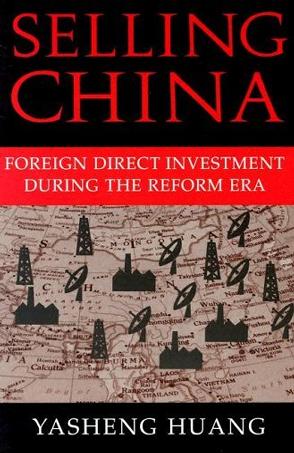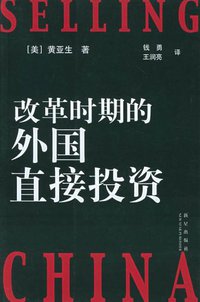Selling China
豆瓣
Foreign Direct Investment during the Reform Era
Yasheng Huang
简介
In this book, Yasheng Huang makes a provocative claim: the large absorption of foreign direct investment (FDI) by China is a sign of some substantial weaknesses in the Chinese economy. The primary benefits associated with China's FDI inflows are concerned with the privatization functions supplied by foreign firms, venture capital provisions to credit-constrained private entrepreneurs, and promotion of interregional capital mobility. Huang argues that one should ask why domestic firms cannot supply the same functions. China's partial reforms, while successful in increasing the scope of the market, have so far failed to address many allocative inefficiencies in the Chinese economy.
contents
List of tables and figures
List of abbreviations
Synopsis of the book
Preface
1. Introduction
2. An analytical framework
3. Problems in China's corporate sector
4. Constraints on nonstate firms and foreign direct investment
5. State-owned enterprises and insolvency-induced foreign direct investment
6. Economic fragmentation and foreign direct investment
7. Conclusion
Bibliography
Index.
Read more at http://www.cambridge.org/us/academic/subjects/politics-international-relations/political-economy/selling-china-foreign-direct-investment-during-reform-era#FAMpTuRJme6l5Q2S.99
